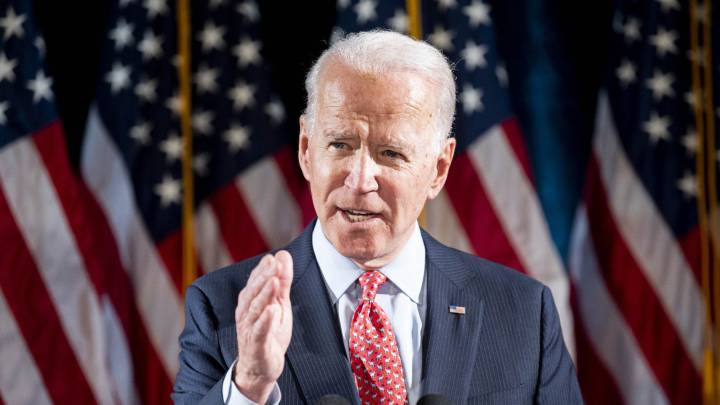Coronavirus vaccine eclipses US elections as economic game-changer

President Donald Trump may not have moved on from the election yet, but investors sure have.
It started on Monday when Pfizer announced that the COVID-19 vaccine it is developing with Germany’s BioNTech proved 90 percent effective in a late-stage trial.
The prospect of a vaccine on the horizon turbocharged hopes on Wall Street that a pandemic game-changer is within grasp.
While Main Street continues to grapple with a slowing economic recovery, record COVID-19 infections, widespread layoffs, and an unemployment rate nearly double pre-pandemic levels, Wall Street is positioning portfolios for the economy investors think will take shape months from now.
For many investors, Pfizer’s vaccine news heralded that an eagerly anticipated “normalisation” is within grasp: an economy in which consumers skip the RV and book holidays that include flights and hotels. An economy where people watch movies in cinemas rather than stream them at home, or let their Pelotons gather dust while they head to gyms to sweat with strangers.
An economy unconstrained by the ever-present whiff of bleach.
US President-elect Joe Biden moved quickly to temper expectations in the wake of the Pfizer-BioNTech announcement, reminding the country that even if the vaccine is approved it will not be widely available for months.
“We’re still facing a dark winter,” he warned.
That did not stop the Dow Jones Industrial Average and the S&P 500 indexes from hitting new record highs during Monday’s session as investors rotated out of tech and other “stay at home” shares and into stocks brutalised by the pandemic – airlines, hotels, cruise and theatre operators, financial firms.
The “vaccine rally” stretched into Tuesday for the Dow, which weights its component companies by price. But the sell-off in tech dragged on the S&P, which weights its components by total market value.
On Wednesday morning, portfolio strategists at Goldman Sachs raised their year-end target for the S&P 500 from 3600 to 3700 – good news for people with college and retirement savings plans because the S&P is a barometer for those. Goldman’s note to clients captured how swiftly investor attention had shifted: “A vaccine is a more important development for the economy and markets than the prospective policies of a Biden presidency.”
That is because Wall Street has shrugged off the Trump campaign’s legal challenges to vote counts and is betting that Republicans will keep control of the Senate (though it will ultimately hinge on two runoff election in Georgia on January 5).
The wager is Biden’s agenda of tax hikes and regulations will be DOA in a divided Congress and a slimmed-down $1 trillion package of virus relief aid will be passed shortly after the new year.
But the vaccine rally lost steam by the close of trading on Wednesday. Because though hope may spring eternal on Wall Street, sometimes the reality of the moment is so grim, it eclipses a euphoric outlook.
COVID-19 infections are surging in the United States, Europe and elsewhere, imperilling lives and livelihoods.
The number of new confirmed COVID-19 cases in the US topped 153,000 as of Friday – the 10th consecutive day new cases have exceeded 100,000, according to Johns Hopkins University.
Hospitalisations of people with COVID also hit a record on Friday, said the COVID Tracking Project.
California, New York and parts of the Midwest have ratcheted up restrictions to contain spiralling infections, but as always there is a sting in the tail because those measures promise to further hobble the economy’s march back to health.
Europe is also in the throes of an infection wave. On Wednesday, the head of its largest economy, German Chancellor Angela Merkel, echoed Biden’s “dark winter” warning: “As it was the case with the Spanish flu, we now also have to expect that the second wave will be more severe,” she said during a video conference.
On Thursday, Federal Reserve Chairman Jerome Powell further managed expectations over the looming prospect of a vaccine. “From our standpoint, it’s just too soon to assess with any confidence the implications of the news for the path of the economy, especially in the near term,” he said.
By Friday though, US stock markets were back in rally mode as investors continued to snap up shares beaten down by the pandemic.
The S&P 500 vaulted 1.4 percent to finish at 3,585.15 – a record, signalling that though the next few months will likely prove very bleak indeed, investors do eye dawn at the end of the darkness.

